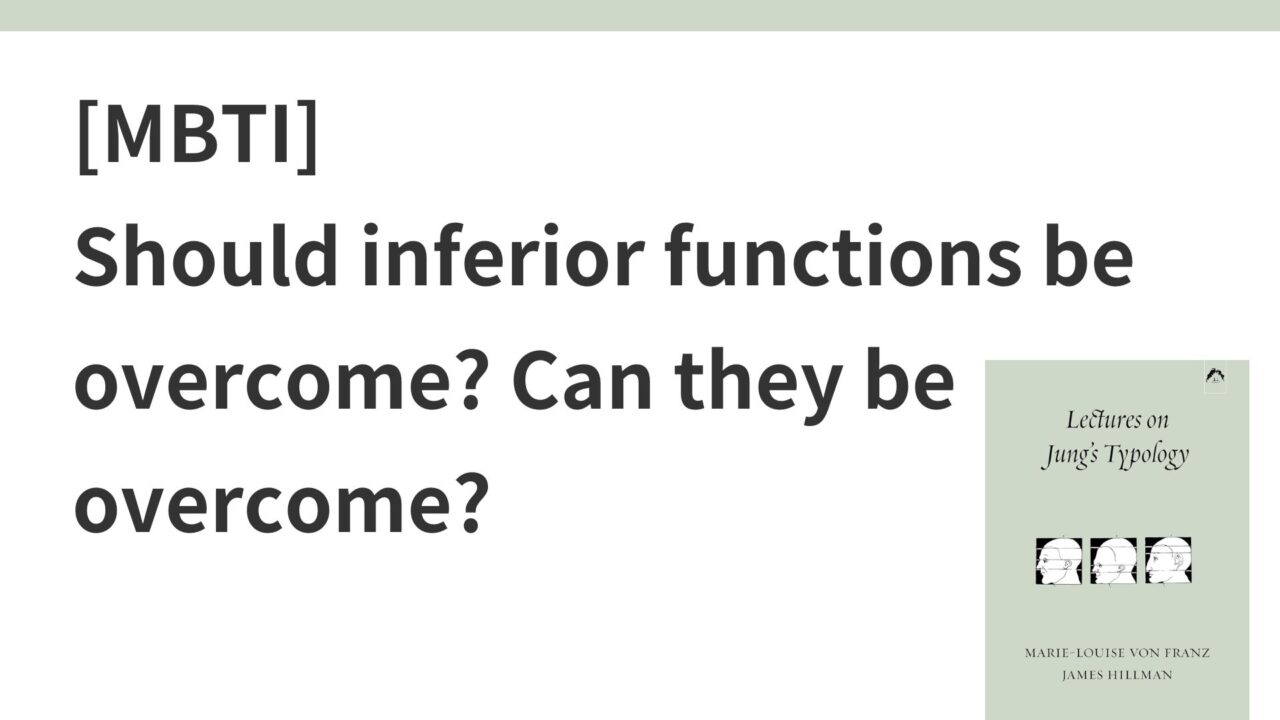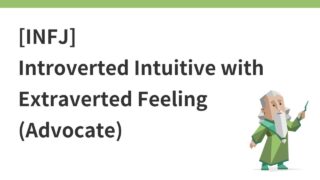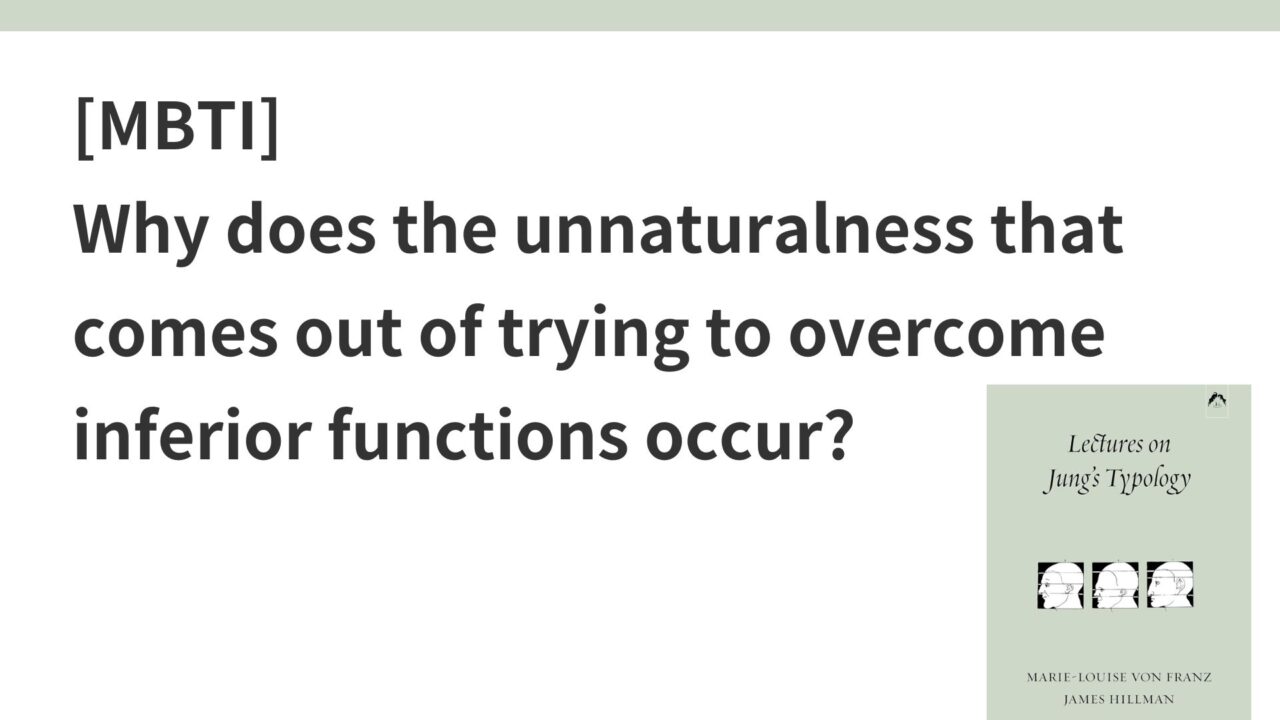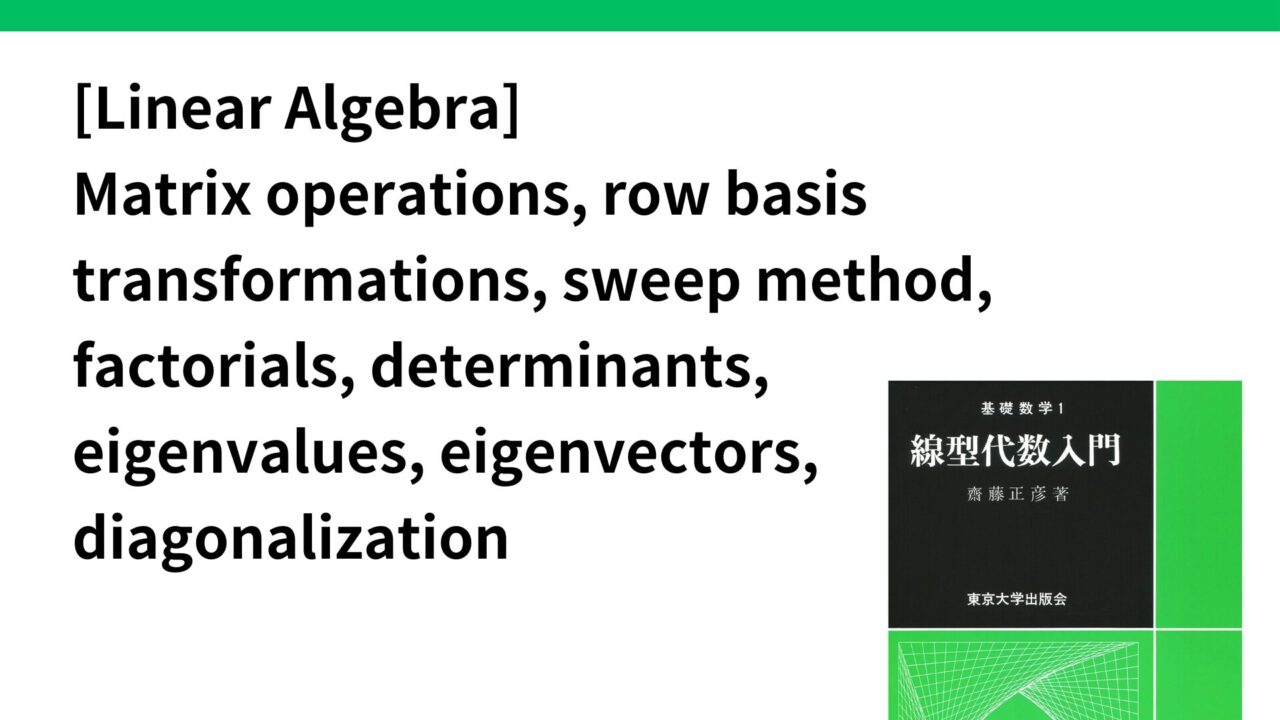Introduction.
Previously, in this article, we asked, ” Why does the unnaturalness that comes out of trying to overcome an inferior function arise? ” described the following.
In this issue.
- Can inferior functions be completely overcome?
- Should overcoming archipelago functions be a conscious effort? (Should weaknesses be overcome?)?
- What happens to the balance between the dominant and subordinate functions of the developed personality type?
I would like to describe the following
The source is Jung’s typology lectures, written by Jung’s collaborator, Marie.
Tiredness and decadence of the dominant function that comes with type development
As a concrete example, let’s raise INFJs.
The cognitive functions of INFJs, in order of development, are as follows.
- Primary function (the function you are most aware of): introverted intuition (Ni)
- Auxiliary functions (functions that function well but are difficult to recognize in oneself): extraverted affect (Fe)
- Third function: introverted thinking (Ti)
- Inferior function: extroversion sensation (Se)
First, the main function is developed from childhood, and when the main function reaches a certain level, the next step is to develop the auxiliary function, and then the third function, and so on, developing the weakest function in order from the strongest function.
At a certain stage of the game.
- I get tired of living in society using only what I’m good at.
- If you use only the functions you are good at, they will gradually wear out like an old car.
The combination of these two factors, which are “the first two factors,” and a focus on other functions, will lead to the development of auxiliary and third functions.
Now, if we develop the third function in the same way, can we just develop the fourth function, which is an inferior function, as it is (to become a perfect personality type)? Jung argues that this is not possible.
Trying to overcome inferior functions throws everything out of balance.
First, the inferior function belongs to the unconscious, a primitive animal need.
In contrast, the main function to third function belongs to the conscious mind and can be controlled to some extent as one’s specialty.

Attempting to overcome an inferior function is an act of trying to pull an inferior function that belongs to the unconscious into the conscious mind and bring it under control.
If you try to force the inferior function up, the entirety of the primary to tertiary functions belonging to the conscious mind will collapse, and the more you try to raise the inferior function, the more it will descend from the conscious mind.
The mistake some people make is to think that they can bring inferior functions up to the level of other conscious functions, but they cannot.
One can try to force the inferior function to work in examinations or in certain aspects of life, but it succeeds only to a certain extent and only by developing a socially accepted compensatory response. This is because the fourth function insists on remaining unconscious.
Trying to fish for inferior functions is like trying to fish for the entire collective unconscious; it is like putting a crappy fishing rod in front of a fish that is too big.
For example, if a person who is introverted by nature tries to forcibly release the extroversion of his/her inferior function while intoxicated with the help of alcohol, he/she may end up with unnatural tension and extroversion, which may be very unpleasant for those around him/her, since it is an area that is difficult to control in the first place.
If you try to force up inferior functions, you revert to cavemen.
Well, then, what should we do?
Be humble and place each function in the middle realm between the conscious and unconscious
He tells us that it is good to be humble and to consciously pull back a little on the dominant function we have been using, and to naturally pull back a little on the inferior function, either unconsciously or not.
For example, the following is illustrated with an INFJ example.
The inferior function remains unconscious but is slightly elevated.
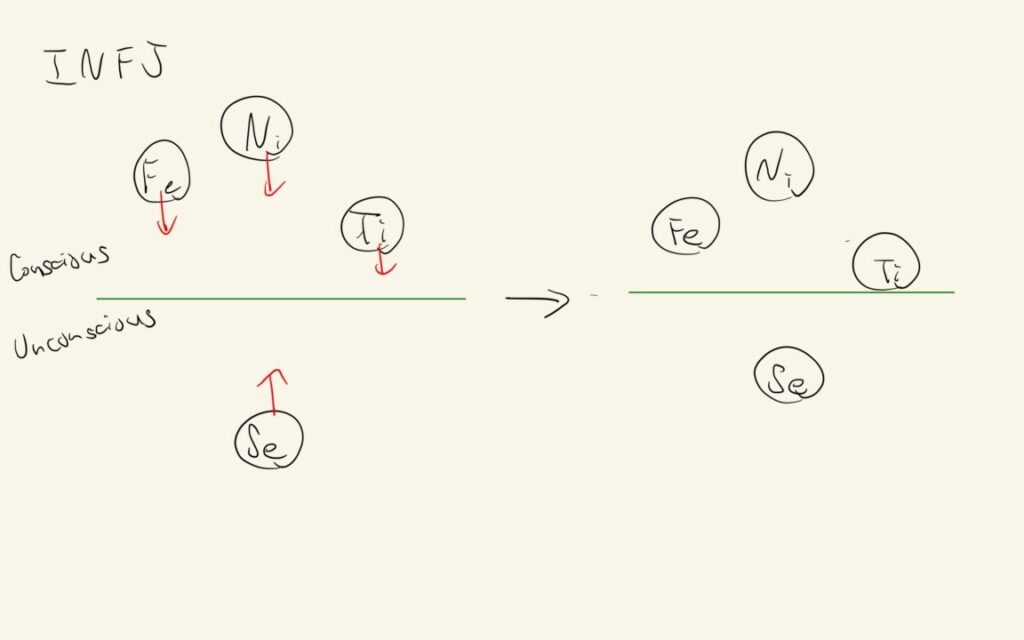
This in-between realm, neither upper nor lower, is established through a particular form of fantasizing: active imagination. At this moment, the four functions remain only as tools at our disposal, taken out and put down.

It is difficult to give an example, but the figure that has achieved the intermediate realm is like the behavior of a Zen Buddhist practitioner, a state in which the ego-consciousness is detached from identification with a particular function.
The inner door (inner world) is closed, but the person responds to every person, every situation, and everything in an appropriate manner, using the dominant or subordinate function each time, and returns to the inner door when the response is complete.
It does not assimilate and rely solely on the primary function, which is its strength, nor does it forcibly pull up inferior functions to overcome them, but detaches itself from them and responds to each function as a tool, pulling out tools to suit the situation at the time.
Although the content is abstract and difficult to understand,
- If the strengths are overextended, the inferior functions will be further suppressed, which may lead to an imbalance, and at some point, the inferior functions may explode and return to a primitive state.
- On the other hand, trying too hard to overcome weaknesses is not good either, because the strengths are unconsciously lowered, and this too is unbalanced.
He said that balance (moderation) is important.
It is interesting to note that the destination is described as a Zen Buddhist Master.
